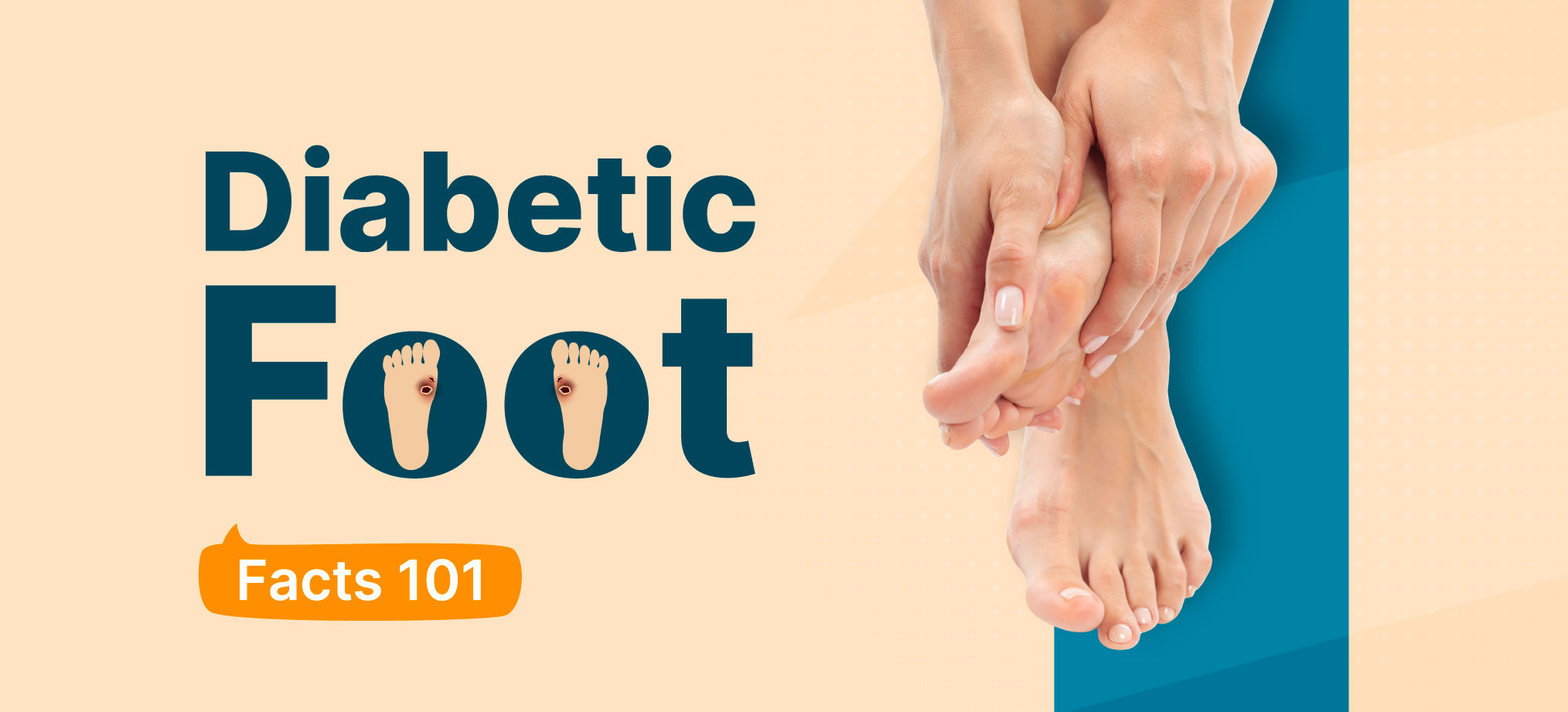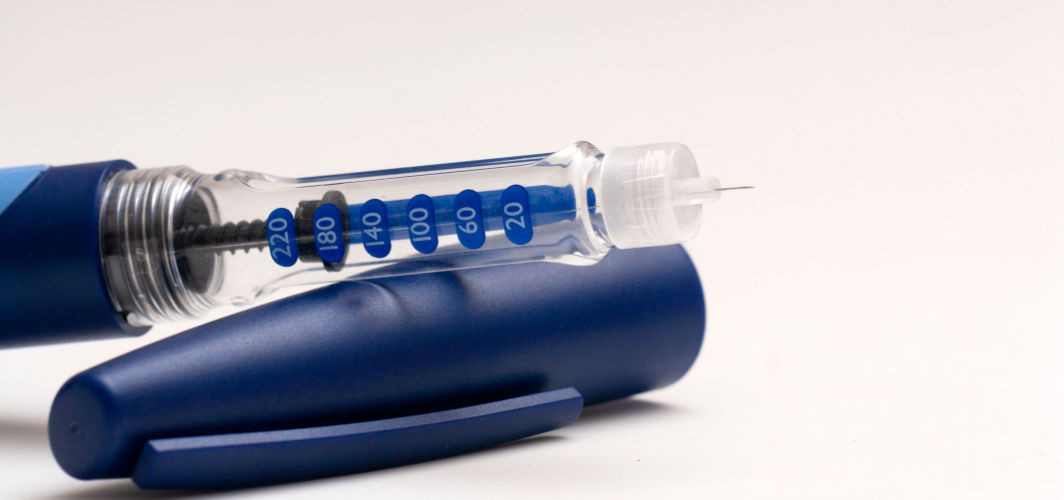Diabetes Management
Can High Blood Sugar During COVID-19 Indicate Diabetes?
4 min read
By Apollo 24|7, Published on - 12 June 2023, Updated on - 14 June 2023
Share this article
0
0 like

The COVID-19 infection plagued the entire world, affecting millions of people across nations. While it was believed to be a respiratory infection in the beginning, it ended up affecting the overall well-being of those affected. It was seen that several COVID-19 patients were diagnosed with diabetes post-infection. In this article, we are going to discuss all you need to know about this new onset of diabetes so that you do not have to stress over what it might be.
The Latest Study
A recent study conducted in the US has shown that many COVID-19 patients newly diagnosed with diabetes might be having a temporary form of disease related to the acute stress of the viral infection. The study found that:
- While many of these patients were young and uninsured, scientists believe the majority of these people could have pre-existing diabetes that never got diagnosed.
- Moreover, it was also found that the patients with high blood sugar had higher inflammatory markers and require frequent admission to hospital ICUs than COVID-19 patients with pre-existing diabetes.
- The transitory nature of this condition also suggests that newly diagnosed diabetes is likely caused by insulin resistance. Insulin resistance is a condition where the body’s cells cannot properly absorb blood sugar in response to insulin, resulting in a higher-than-normal build-up of glucose in the body.
- Scientists believe this condition can also arise due to direct and permanent injury to beta cells, which are responsible for manufacturing insulin.
Also read: Why is controlling diabetes even more important during the COVID-19 pandemic?
Highlights of the study
- Patients with newly diagnosed diabetes had lower glucose levels but more severe COVID infections as compared to the patients with pre-existing diabetes.
- Once the patients were discharged, nearly half of those with COVID-19 and newly diagnosed diabetes reverted to normoglycemia (normal glucose levels) or prediabetes and only 8% of them used insulin after one year.
- Rather than affecting people with a new form of diabetes, the inflammatory stress could be pushing those with undiagnosed prediabetes.
Know if you are at risk of developing diabetes, Book Apollo's HbA1C Test
There have been a lot of clinical arguments regarding the cause of this “new onset.” However, in most cases, the doctors suggest that it is a temporary spike rather than a continued form of diabetes. Hence, it should not be considered a threat to your health. However, if you are experiencing something similar, you should contact your doctor for the correct treatment.
FAQs
Q. Can high blood sugar during COVID-19 be temporary?
A: In most cases, a temporary spike in blood sugar during COVID-19 infection could be an indication of underlying undiagnosed diabetes. Monitoring blood sugar levels and consulting a healthcare professional is important to determine the cause and appropriate management.
Q. How can I differentiate between temporary high blood sugar and diabetes?
A: If you experience persistent or recurrent high blood sugar levels, consult a healthcare professional. They may recommend tests like fasting blood glucose, oral glucose tolerance test, or HbA1c test to confirm the diagnosis of diabetes.
Q. What are the common symptoms of high blood sugar during COVID-19?
A: Excessive thirst, frequent urination, hazy vision, and sluggish wound healing are all common signs of high blood sugar. Some people, however, might not show any symptoms at all.
Q. Can COVID-19 increase the risk of developing diabetes?
A: COVID-19 is not a direct cause of diabetes but severe cases and factors like inflammation and corticosteroid use may contribute to the development or worsening of diabetes. Further research is needed to fully comprehend the relationship between COVID-19 and diabetes.
Q. How can I manage high blood sugar levels during COVID-19?
A: Changing medicines, routinely checking blood sugar, eating a balanced diet, remaining active (if permitted), controlling stress, and drinking plenty of water may all be necessary to maintain blood sugar levels during COVID-infection.
Medically reviewed by Dr Sonia Bhatt.
Diabetes Management
Leave Comment
Recommended for you

Diabetes Management
Prevention Tips For Diabetes Foot Infection
In case of uncontrolled diabetes, high blood sugar levels can damage the blood vessels and nerves, resulting in poor blood circulation. This can increase the risk of foot ulcers and infections. The reduced blood flow and loss of sensation in the feet can make it difficult to detect injuries or infections, leading to delayed healing and potential complications.

Diabetes Management
Pineapples & Diabetes: Is it Safe for Diabetics?
Pineapples, though rich in vitamins, minerals, and fibre, can impact blood sugar due to their carbohydrate content. They fall into the medium GI category with a GI score of 59-66. However, this doesn’t mean that diabetics are not allowed to eat pineapples. Pairing pineapple with protein, eating it in moderation and consuming it in the right form can help control blood sugar. Various forms of pineapple have different GI values, with raw and grilled options being lower, while canned and juice have higher values. Hence, careful portion control and informed choices can allow individuals with diabetes to enjoy pineapple while prioritizing their health.

Diabetes Management
What are the Factors that Influence Insulin Action?
Insulin action refers to the ability of insulin to regulate blood sugar levels and various metabolic processes in the body. Insulin action is influenced by factors like, your weight, physical activity, diet, hormones, medications, stress, sleep, age and genetics. Insulin sensitivity varies among individuals and can be affected by lifestyle and genetic predispositions. Maintaining a healthy lifestyle through diet, exercise, and stress management is essential for optimal insulin action and metabolic health.
Subscribe
Sign up for our free Health Library Daily Newsletter
Get doctor-approved health tips, news, and more.
Visual Stories

8 Fruits That are Incredibly Healthy for Diabetes
Tap to continue exploring
Recommended for you

Diabetes Management
Prevention Tips For Diabetes Foot Infection
In case of uncontrolled diabetes, high blood sugar levels can damage the blood vessels and nerves, resulting in poor blood circulation. This can increase the risk of foot ulcers and infections. The reduced blood flow and loss of sensation in the feet can make it difficult to detect injuries or infections, leading to delayed healing and potential complications.

Diabetes Management
Pineapples & Diabetes: Is it Safe for Diabetics?
Pineapples, though rich in vitamins, minerals, and fibre, can impact blood sugar due to their carbohydrate content. They fall into the medium GI category with a GI score of 59-66. However, this doesn’t mean that diabetics are not allowed to eat pineapples. Pairing pineapple with protein, eating it in moderation and consuming it in the right form can help control blood sugar. Various forms of pineapple have different GI values, with raw and grilled options being lower, while canned and juice have higher values. Hence, careful portion control and informed choices can allow individuals with diabetes to enjoy pineapple while prioritizing their health.

Diabetes Management
What are the Factors that Influence Insulin Action?
Insulin action refers to the ability of insulin to regulate blood sugar levels and various metabolic processes in the body. Insulin action is influenced by factors like, your weight, physical activity, diet, hormones, medications, stress, sleep, age and genetics. Insulin sensitivity varies among individuals and can be affected by lifestyle and genetic predispositions. Maintaining a healthy lifestyle through diet, exercise, and stress management is essential for optimal insulin action and metabolic health.